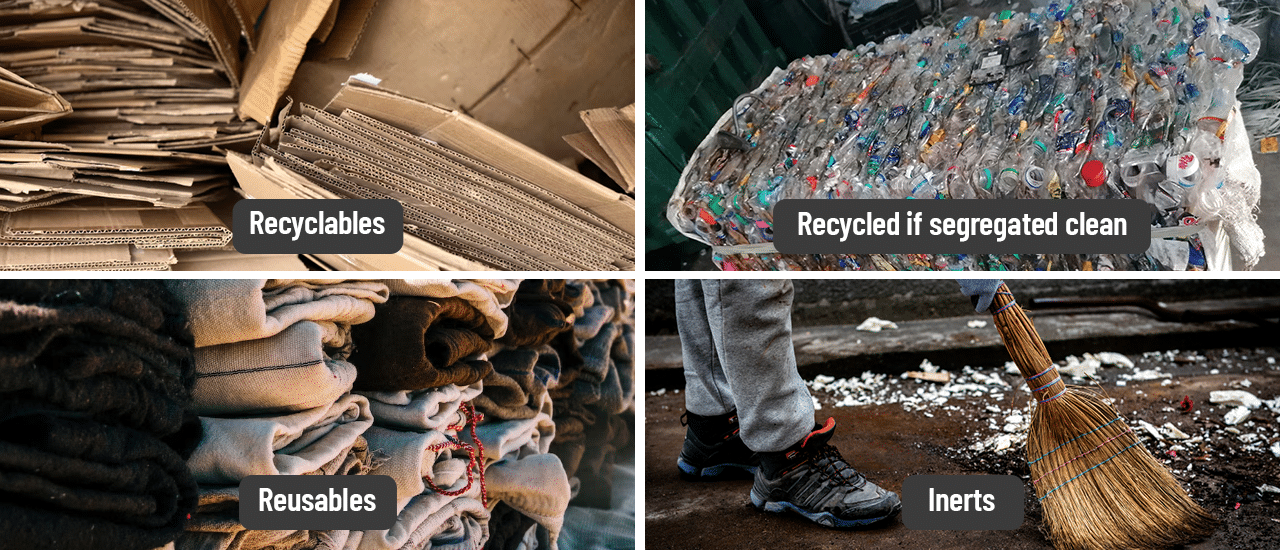
WHAT IS DRY WASTE?
Waste that does not decompose naturally, and the only way it changes its form is by applying heat or some chemical reaction is known as nonbiodegradable/inorganic/dry waste. Handling dry waste is a critical component of solid waste management.
WHAT ARE THE TYPES OF DRY WASTE?
| Recyclables | |
|---|---|
| Types of waste | Plastic waste, paper, cardboard, metals, glass |
| Source of waste | Residential area , Commercial areas, Industries , Hotels and restaurants |
| Waste handling | a. Waste picker ecosystem b. Collection by Governing body |
| End of life options | Recycled back into another form of product |
| Reusables | |
|---|---|
| Types of waste | Old clothes, E waste , Utensils , Toys, Old books, Furniture |
| Source of waste | Residential areas , Commercial areas |
| Waste handling | a. Collection by governing body b. Systems promoting recycle and reuse |
| End of life options | a. Recycled back into some other form of product b. Reused by the under privileged. |
| Recycled if segregated clean | |
|---|---|
| Types of waste | Specific types of plastic like that of multilayered plastics, aluminium foil , Sponge |
| Source of waste | Residential area , Commercial areas, Industries , Hotels and restaurants |
| Waste handling | a. Collection by governing body b. Systems promoting recycle and reuse |
| End of life options | Recycled into granules, sheets, furniture etc. |
| Inerts | |
|---|---|
| Types of waste | Sweeping waste, dust, soil |
| Source of waste | Roads, streets, playgounds, construction sites |
| Waste handling | Collection by governing body |
| End of life options | Sanitary Landfill |
